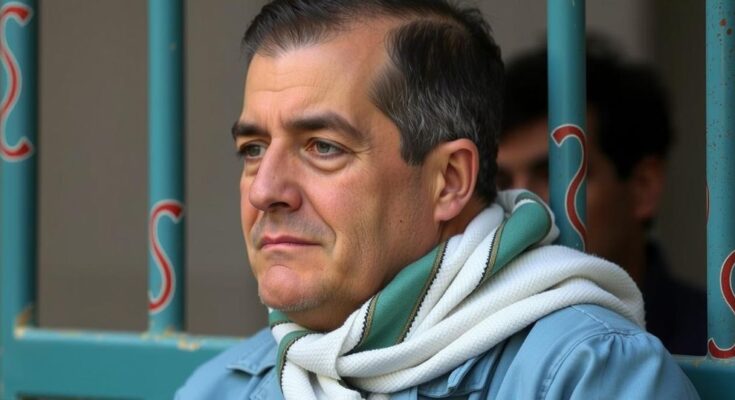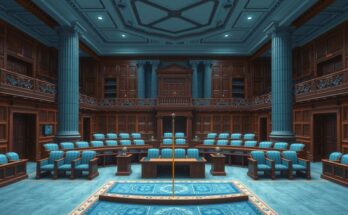Said Ait Mahdi, a Moroccan activist, has been sentenced to three months in prison for leading protests against the government’s inadequate earthquake response. His case has drawn condemnation from human rights advocates who view the charges as retaliatory and politically motivated. The earthquake in September 2023 caused significant devastation, leaving many residents in temporary shelters, prompting Ait Mahdi’s activism.
MARRAKECH, Morocco (AP) — A prominent Moroccan activist, Said Ait Mahdi, who organized demonstrations protesting the government’s insufficient response to the recent earthquake, has been sentenced to three months in prison, along with a fine exceeding $1,000. His attorney, Isaac Charia, confirmed that Ait Mahdi faced multiple charges, including defamation, assault, and inciting an unauthorized protest. This incident has drawn the ire of human rights advocates, who characterize the sentencing as arbitrary and politically motivated.
The devastating 6.8-magnitude earthquake that struck the Al Haouz region in September 2023 resulted in nearly 3,000 fatalities and significant destruction, leveling homes and critical infrastructure. Ait Mahdi’s case marks a notable event, as he is the first activist from the affected area to receive such a sentence for advocating for vulnerable populations still residing in temporary shelters.
In reaction to the sentence, civil liberties organizations, including the Moroccan Association for Human Rights, denounced the actions taken against Ait Mahdi, asserting that his arrest was a retaliatory measure for his humanitarian advocacy. Furthermore, a coalition of NGOs has claimed that the charges against Ait Mahdi are an attempt to obscure the government’s failures in addressing the immediate needs of earthquake victims.
The background of this situation involves the aftermath of the severe earthquake that struck Morocco in September 2023, which caused widespread destruction and loss of life. This disaster intensified existing disparities faced by marginalized communities in the region. In response to the inadequate relief efforts from the government, local activists, led by figures like Said Ait Mahdi, began to stage protests, calling attention to the slow recovery and lack of support for those affected. As these demonstrations gained traction, authorities began to crack down, labeling the activism as unlawful, leading to Ait Mahdi’s arrest and subsequent sentencing.
In summary, the sentencing of Said Ait Mahdi represents a troubling development within a broader context of civil rights suppression in Morocco, particularly concerning the government’s handling of the earthquake disaster. The reaction from human rights advocates emphasizes the ongoing struggle for accountability and justice for the victims of the earthquake, as well as the need for reforms in disaster response. Ait Mahdi’s case serves as a poignant reminder of the challenges faced by activists in advocating for their communities in the face of government opposition.
Original Source: apnews.com




